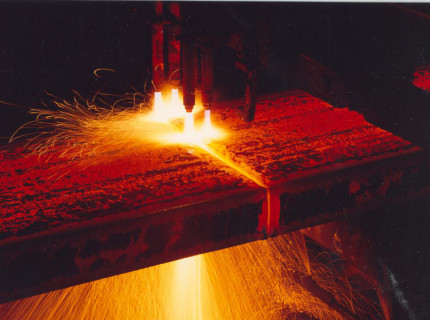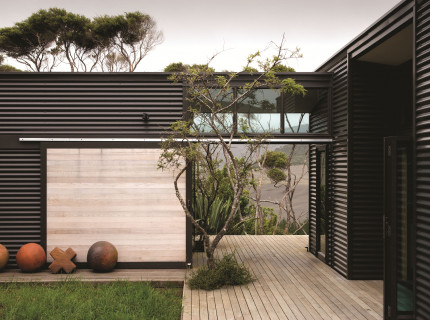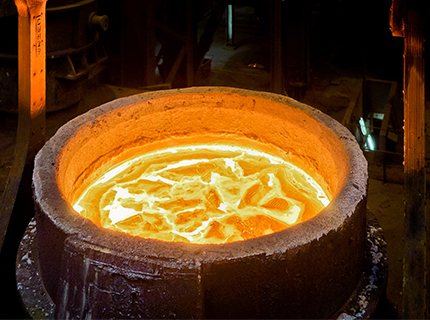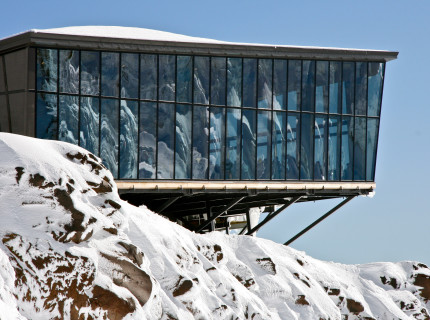The BlueScope Sustainability Report for FY2023 provides a snapshot of how we’re delivering on our sustainability outcomes both here in New Zealand, and in the other 15 countries where BlueScope operates.
The report showcases activity across each of our sustainability outcomes: sustainable growth and transformation, safe, healthy and inclusive workplaces, climate action, responsible products and supply chains and strong communities. Click here to read the full report, or read on for some local highlights.
Sustainable growth & transformation - Securing the future for lower emissions steel
We recently announced our intention to install a new electric arc furnace (EAF) at our Glenbrook steelworks. The commitment to a new EAF was made possible due to a reliable and affordable supply of both firmed renewable energy and domestic scrap steel, along with the right public policy settings and support through co-funding from the New Zealand Government. The significant investment will reduce Glenbrook’s carbon footprint by 800,000 tonnes from day one – the same as taking approximately 300,000 cars off the road permanently. That is a reduction of over 45% in New Zealand Steel’s emissions – or a total of 1% of New Zealand’s total annual emissions.
Safe, healthy & inclusive workplaces - Managing molten metal/water interaction process safety risk
At our Glenbrook steelworks an iron plate product is made by pouring molten iron into a pit in the ground. Any water in the base of the pit when the iron is poured gives rise to a process safety risk. If water encounters molten metal, it rapidly heats and can instantly expand up to 1,700 times its original volume. In a contained space, the change from liquid to gas can cause an explosive molten metal/water interaction.
After a near-miss in 2022, the New Zealand Steel team worked with SteelServ, the pit operator, to investigate the control measures for this risk and identify further improvements that were then implemented. These improvements resulted in reducing the safety risks, as seen early in 2023 when, despite once-in-a-century rainfall across the region, this process continued to operate without a significant molten metal/water interaction incident.
Managing fugitive dust emissions
This year we continued to expand our water truck fleet at Glenbrook, further improving the regular programme of watering unsealed roads to suppress fugitive dust emissions and to reduce the risk of poor air quality on site and for the neighbouring community.
Working with SteelServ, we introduced a dedicated digital system to manage dust suppression activity. This involved organising facility areas into zones and monitoring truck fleet routes to respond to prevailing weather conditions, or notifying employees by alerts sent from continuous monitoring stations to mobile phones.
Creating an inclusive workplace
We are proud to have jointly won the Inclusive Workplace (Medium-Large organisation) category at this year’s annual Diversity Awards NZ, in recognition of our efforts to create a more inclusive workplace for working caregivers and pregnant employees. Chief Executive Robin Davies says, “ This award recognises a significant effort by New Zealand Steel to enhance its employees’ experience and employ a safe, engaged and evolving workforce. I am proud to acknowledge that the initiatives recognised were co-designed by our HR team and an employee focus group”.
New Zealand Steel was also a finalist in the Diversity and Inclusion Award category at the Human Resources New Zealand Awards this year. While not successful in winning the category, the judging panel acknowledged that the Company's initiatives will become an increasingly compelling case study over time as we are able to track and measure the impact of these initiatives, beyond the initial positive employee feedback and testimonials.
Strong communities - Collaboration with local iwi
In addition to regular community engagement activities, we engaged with local iwi (Ngāti te Ata and Ngāti Tamaoho) this year as part of the resource consent renewal process for stormwater and process water discharges.
We sought to further understand cultural values and incorporate iwi feedback on its proposed ecological enhancement for coastal bird habitat in the Waiuku Estuary and adjacent freshwater wetlands. Positive discussions in the early planning stages have enabled us to incorporate iwi feedback in proposals.
To date iwi representatives have provided valuable insights into the importance of the wetlands as they provide habitat for birds, medicinal plants, fish and food. Iwi support the reintroduction of indigenous species and improved pest control in and around these areas.
To learn more on New Zealand Steel’s sustainability initiatives, click here >
For more on BlueScope's sustainability reports, click here >



